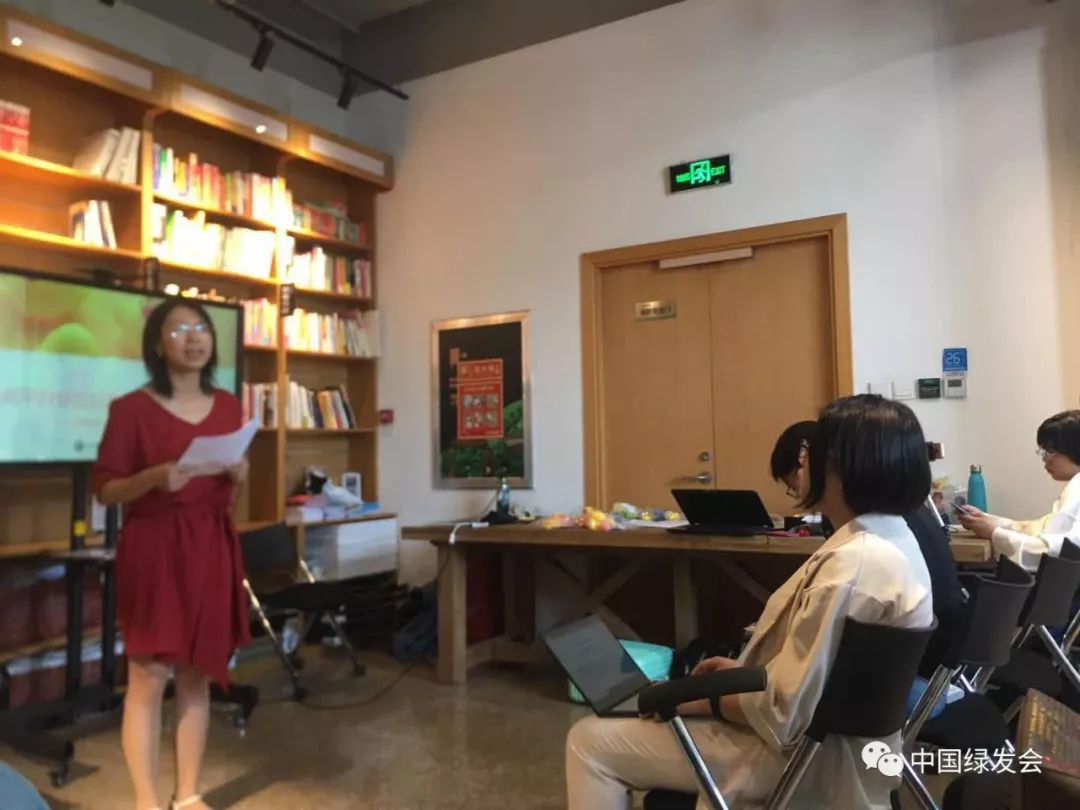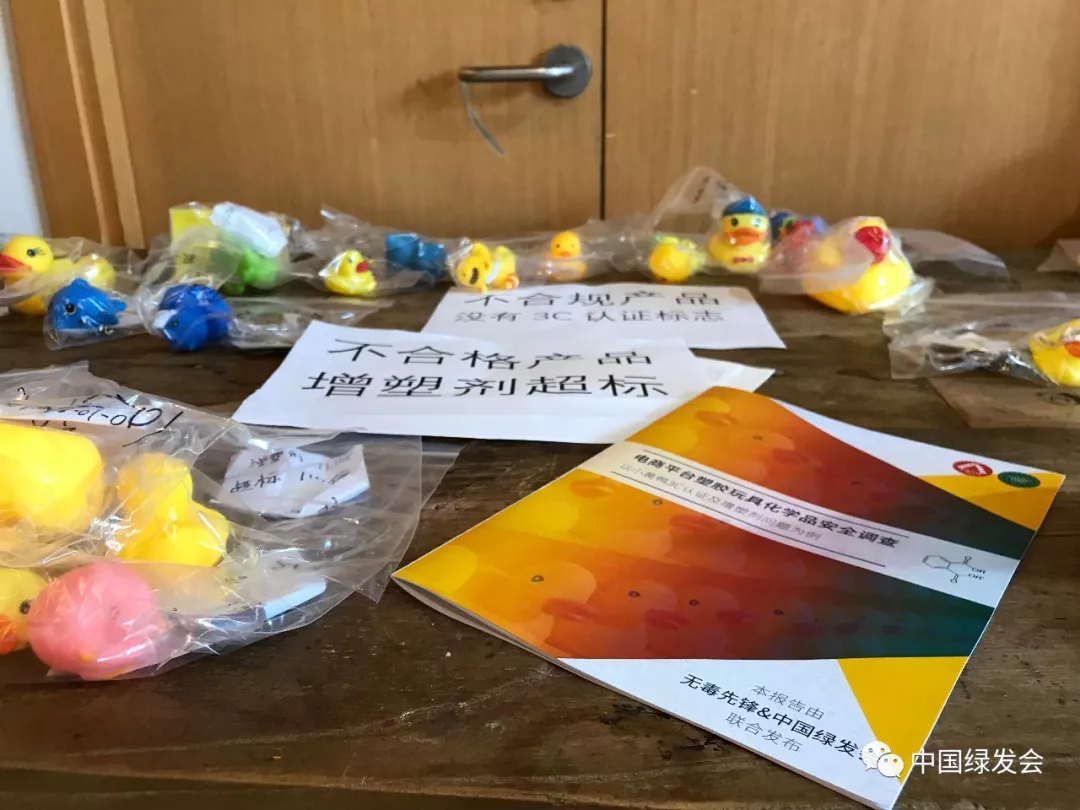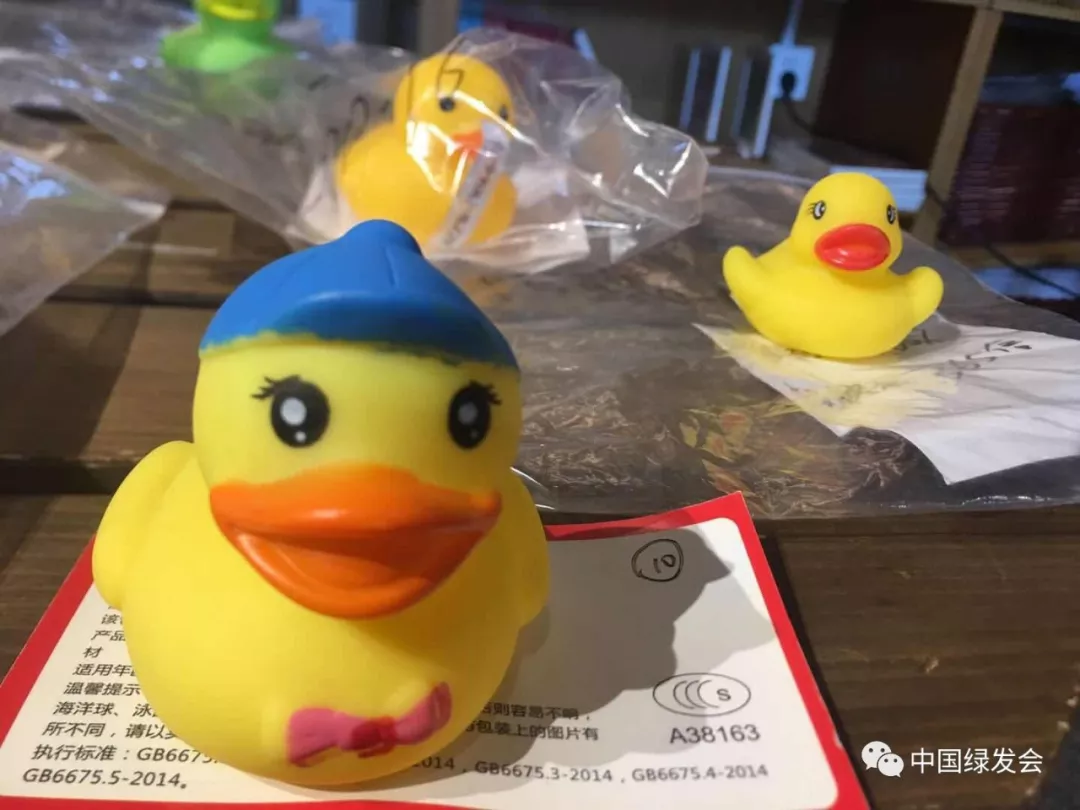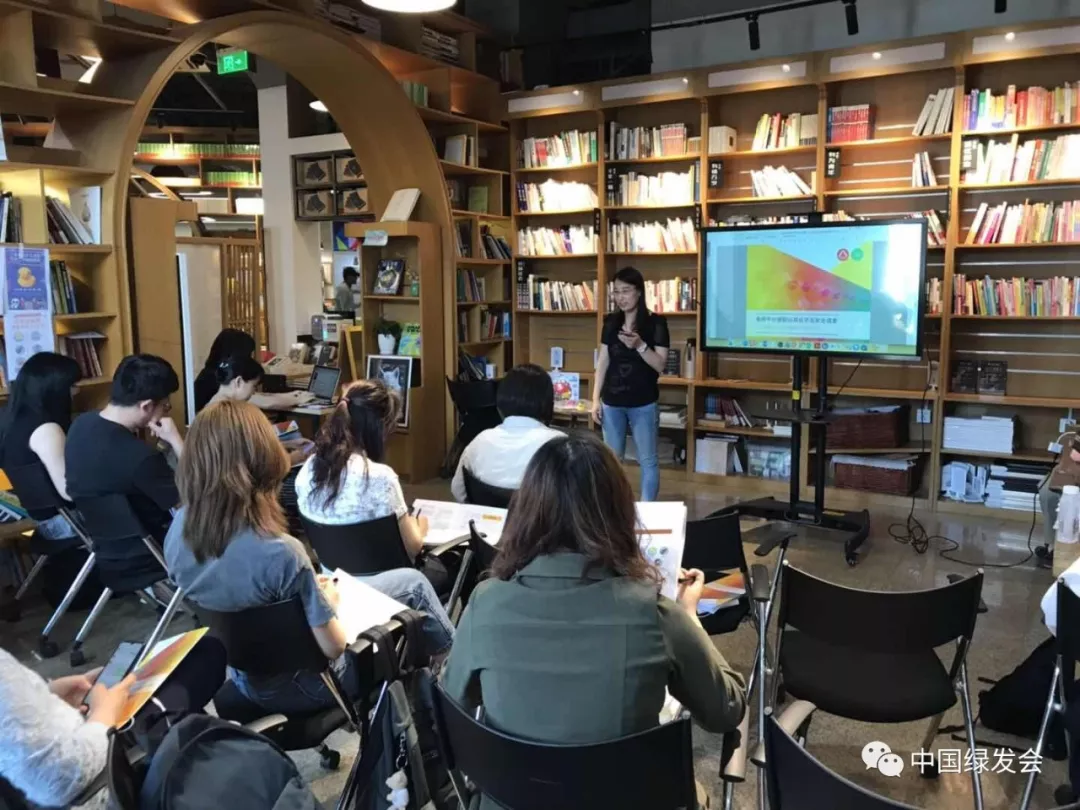This article is the content of the speech delivered by the representative of China Biodiversity Conservation and Green Development Foundation (CBCGDF) at the press conference of small yellow duck plasticizer exceeding the standard recently. Now, I would like to share with more partners who are concerned about chemical pollution, especially those around us.
Good afternoon, NGO partners, parents’ representatives, and media friends
It's a great honor to hold today's press conference with “zero-waste” partners. Let me first briefly introduce the CBCGDF.
The CBCGDF was established in 1985 to welcome reintroduction of elk from Tabang Temple Manor in England. Therefore, the predecessor of CBCGDF is the China Elk Foundation. In 1992, after China acceded to the Convention on Biological Diversity, it changed its name to "China Biodiversity Conservation Foundation". Later, Chairman Hu Deping put forward the theory of "green locomotive" and renamed it "China Biodiversity Conservation and Green Development Foundation" again. From the full name of the Foundation, it is not difficult to see the two main business areas of CBCGDF: biodiversity conservation and green development.
In the long-term Conservation of biodiversity by the CBCGDF, the intersection with chemical pollution is natural. That is to say, when the CBCGDF first entered the field of chemical pollution prevention and control, it did not aim to enter this field, but gradually began to deal with chemical pollution more and more in the process of protecting species, genes and ecosystem diversity. Generally speaking, soil, air, water, and even genetic pollution are directly or indirectly related to chemical pollution.
Looking back today, the CBCGDF has done the following work in the prevention and control of chemical pollution and the protection of children's health.
I. Advocacy and Action of "Plastic Pollution Reduction"
Studies have shown that since the 1950s, nearly 9 billion tons of plastic products have been produced globally, of which only 9% have been recycled. In order to reduce plastic waste, CBCGDF has launched activities such as "plastic pollution reduction and Plastic Recycling", "chopstick walking", "green bottle action" in public advocacy, calling on ordinary people to pick up plastic waste, reduce the use of plastic bags, do not use disposable tableware, etc. Even against domestic fast food enterprises, it has initiated environmental public interest litigation, demanding respect for consumers' green consumption rights, and increasing "no use" option of plastic tableware.
2. Promoting the Construction of Green Schools
1). Advocate "Say No to Plastic Book Cover!" In order to reduce the prevalence of plastic book covers in primary and secondary schools in China, CBCGDF has continued to enter primary and secondary schools for nearly two years, tell teachers and students one thing: "Say No to plastic book covers". Many reports about the harmful effects of poor quality "poisonous book covers" on children's health are endless. Even if they are qualified, they also increase a lot of unnecessary plastic pollution. At the same time, it is suggested that the Ministry of Education should pay attention to the excessive use of plastic book covers in primary and secondary schools in China and call for stopping use plastic book covers.
2). Launch the first environmental public interest lawsuit against "poisonous runway". In the plastic playground used on the campus, there are incidents that harm children's health. Over the past decade, reports of health problems of children caused by "poisonous runways" have appeared frequently in newspapers all over the country. But it has not been effectively solved. Because we set up a complaint phone for environmental pollution, we received many reports from parents in 2016. Later on, we found that the newly laid plastic runway had problems. Further research found that the national standard of the plastic runway was formulated by several enterprises together, which totally lacked the participation of third parties; moreover, it was not applicable to primary and secondary schools and kindergartens. We filed an environmental public interest lawsuit against a kindergarten in Beijing where the situation was serious. The Ministry of Education called a halt to the construction of plastic runways throughout the country and invited stakeholders to work together to introduce new national standards. This case was later selected by the Supreme People's Court as the Ten Cases to Promote the Rule of Law in 2017.
3). Studying the standard system of "green school" and promoting the implementation of the concept of "green school" clearly put forward by the Nineteenth National Congress from the perspective of group standards.
3. Environmental Public Interest Litigation
To safeguard the public's environmental interests through legal ways. For example, in August 2015, many enterprises in Ningxia and Inner Mongolia illegally discharged pollutants in the Tengger Desert, causing serious environmental pollution. In July 2015, ConocoPhillips oil company leaked while exploiting oil in the Bohai Bay, causing pollution to marine ecology. There is also the "Changzhou poisonous land case" in 2016, which is not unfamiliar to people concerned about the environment. Among them, several public interest lawsuits on chemical pollution were also included in the best cases. According to our preliminary statistics, about one-third of the environmental public interest lawsuits conducted by CBCGDF involve chemical pollution.
4. Policy proposals to promote environmental governance
In addition, the CBCGDF has done a lot of work on the prevention and control of hazardous chemicals. For example, during the two sessions last year, the CBCGDF supported the relevant members of the Chinese People's Political Consultative Conference (CPPCC) and National People's Congress (NPC) representatives to put forward suggestions on strengthening the environmental responsibility of takeaway platforms and advocating the reduction of takeaway, etc. In March this year, together with several social organizations concerned with the control of chemical pollution, the CBCGDF submitted to the Ministry of Ecology and Environment a proposal for the Regulations on Environmental Risk Assessment and Control of Chemical Substances (Draft for Opinions). It proposed that the name of the Regulations be changed to Regulations on Environmental Risk Management of Chemical Substances. Then 29 specific suggestions were put forward to promote the management of chemical pollution in China from the system construction.
5.Active participation in global environmental governance
In April 2019, the CBCGDF also joined the International Alliance of Civil Chemicals Networks and formally became the three international conventions (Stockholm Convention on Persistent Organic Pollutants, Basel Convention on the Control of Transboundary Movements of Hazardous Wastes and Their Disposal, and Convention on International Prior Informed Consent Procedure for Certain Trade Hazardous Chemicals and Pesticides in International Trade Rotterdam) Observer, who participated in the Conference of the Parties to the Three International Conventions on Chemicals held in Geneva, together with more international NGO partners, continued to promote efforts to reduce the environmental and human health impacts of chemicals and hazardous solid wastes.
6. Environmental Responsibility of E-commerce Platform and Consumer's Green Consumption Right
What responsibilities should e-commerce undertake? Our efforts include but are not limited to:
1). It is suggested that the E-Commerce Law should add ecological civilization and anti-monopoly, and seven suggestions for legislation; (See materials)
2). On March 15, 2018, the concept of "green consumption right" was put forward. At that time, "ecological civilization" had just been written into the Constitution. It was suggested that in the era of ecological civilization, the existing laws and regulations in our country should safeguard people’s "green consumption rights".
In the future, we look forward to working with more NGOs concerned about chemical pollution at home and abroad to expand the field of chemical pollution prevention and control, such as food cosmetics, chemical safety production, and human health protection, with more targeted cooperation and action to protect the earth's ecological environment. Let us protect ourselves (especially children) from chemical pollution.




(Photo credit: CBCGDF)
Original Chinese article:
http://www.cbcgdf.org/NewsShow/4854/8792.html
By / Li Xue
